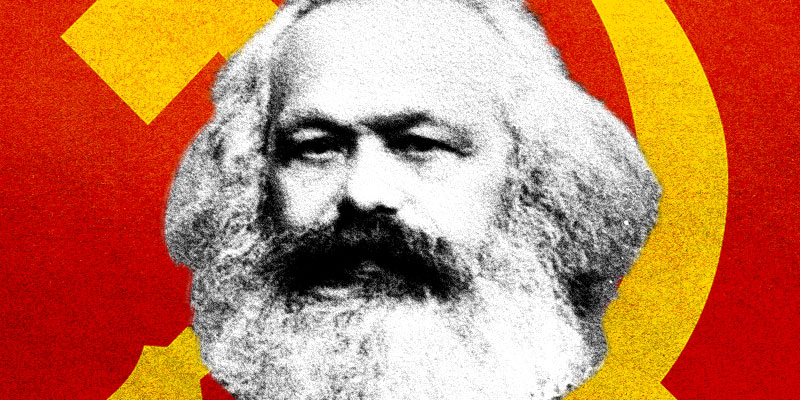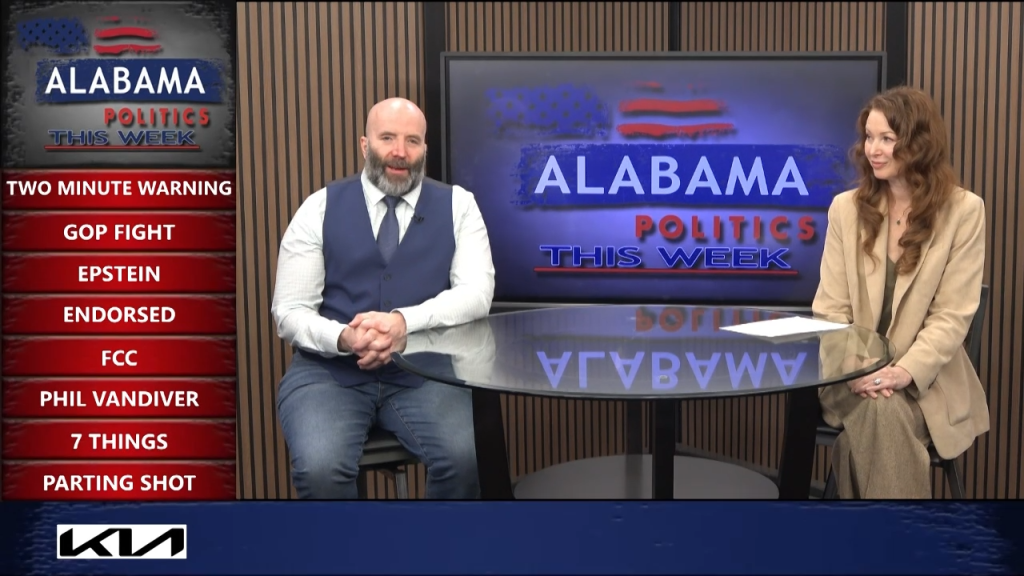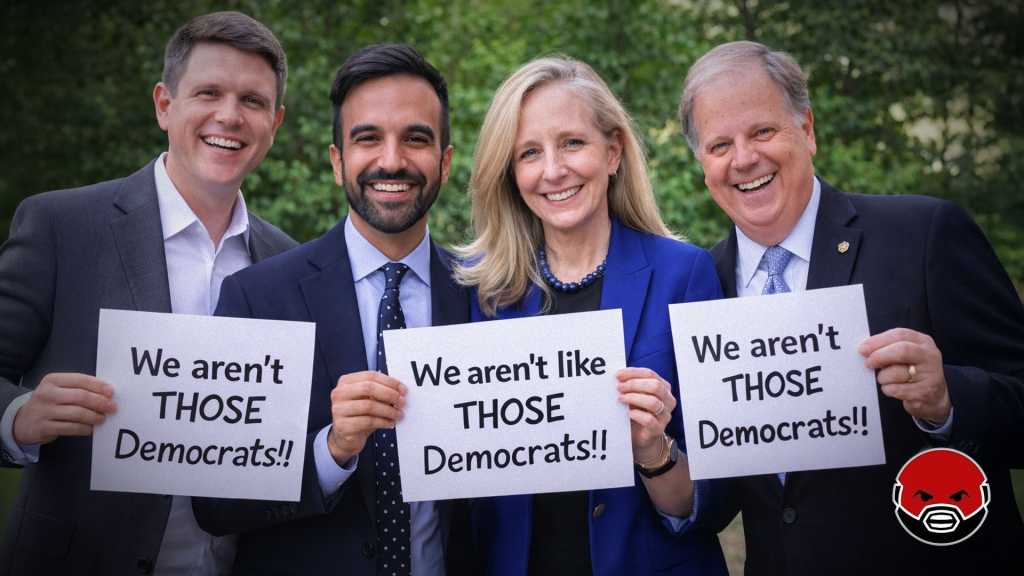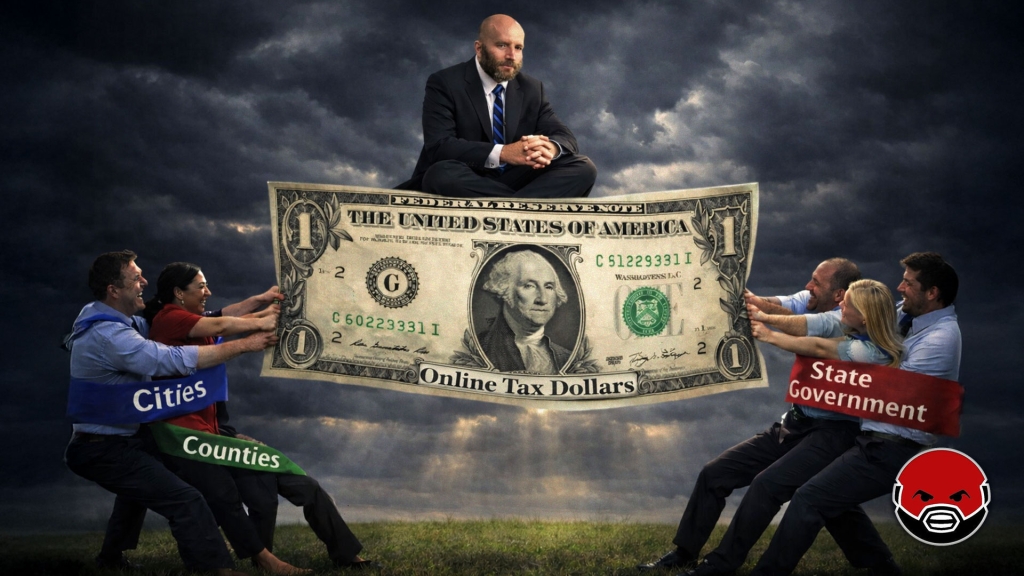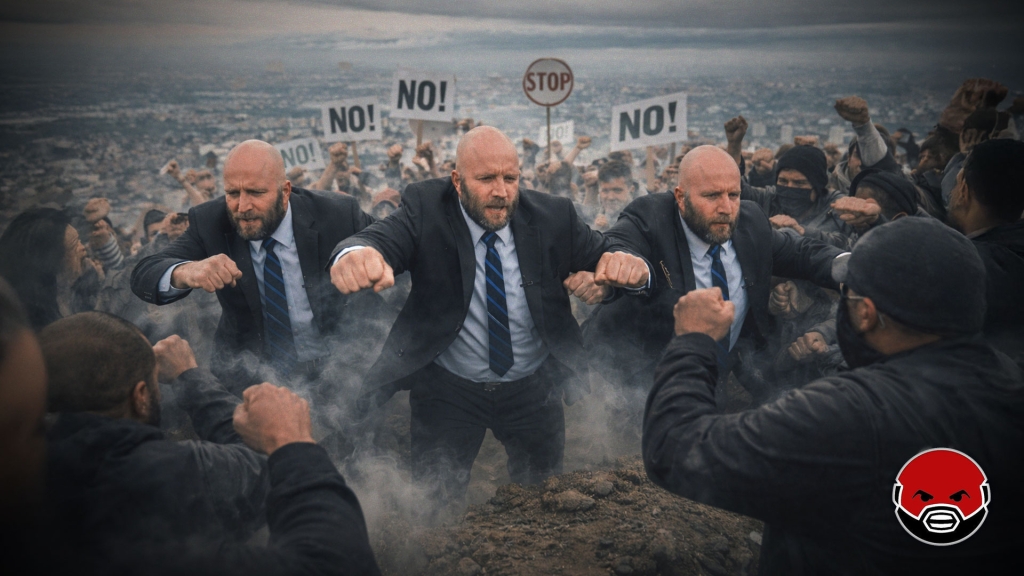Listen to the 10 min audio
Read the transcript:
KARL MARX STATUE BUILT DECADES AFTER BEING TORN DOWN: WHY?
TOM LAMPRECHT: Harry, let me take you to an article which ran about a week ago in The Washington Post. Nearly two centuries ago, the 17-year-old son of a vineyard owner left his tranquil riverside city on the edge of the Prussian empire to make his way in the world and, perhaps, to shake it up a bit. Harry, this individual we’re talking about, we recently celebrated his 200th birthday on May the 5th.
DR. REEDER: Karl Marx is who we’re talking about. In his hometown, they erected an 18-foot statue with a lot of fanfare. What’s interesting is it wasn’t the state of Germany that paid for it, but it was China. China paid for it, who now says that they are the standard bearer for Karl Marx and his theory — his Communist Manifesto — that he wrote in context with a name by the name of Engels.
And so, whenever you talk about Marx, you have to talk about Marx and Engels, or you have to talk about Marx and Lenin, or Marx and Stalin or Marx and Mao Zedong. These are the people who took the Communist Manifesto out of an economic analysis and made it a world and life view that included a messianic state. In other words, it was the state that would enforce the Manifesto and it was the state that would take hold of property, it was the state who would take hold of the economy and the state — and you’ll note that all of them became atheistic like Karl Marx, himself, who was an atheist.
When you saw that statue going up, if you saw the videos, you’ll see a lot of young people. Let me tell you what you won’t see. You won’t see any older people because those were the people who, in the 1980s, tore those statues down. They took down Lenin, they took down Stalin, they took down Marx — they took down all those, particularly, in East Germany. They were glad to get them down.
They were looking at these people that were celebrating the erection of that statue and they remember the days that they tore them down when the wall came down finally and, when that wall came down and all the repression.
When they see Karl Marx, let me tell you what they think: They think gulags, they think prisons, they think famine, they think deprivation. They think all that came with Communism, which was nothing but destruction. They also know that any notion of any freedom of religion is utterly gone because religion is seen as a threat because Communism is a religion.
And, by the way, atheism is a religion. From a Christian world and life view, even it’s with the negative, a-theism, “no god,” that is a religion. That’s a statement of belief that there was nothing and nothing created something and now something has produced all of this. It’s called materialism.
MARXISM = GOVERNMENT CONTROL
And Marx was drastically affected by a number of people, not the least of which was a philosopher by the name of Hagel and Hagel invented a world and life view that was atheistic materialism. And it is specifically what is called dialectical materialism and that is the explanation of everything is circular. Marx had a circular view of history because he had embraced a circular view of life from a philosopher by the name of Hagel.
And Hagel says this: You have thesis, you have antithesis. Thesis and antithesis are in conflict and the result is a synthesis. The synthesis becomes the new thesis, and that thesis automatically has a mutation of an antithesis and that just keeps repeating itself in a circular fashion.
That was Hagel’s dialectical materialism. Well, a guy by the name of Darwin takes that and applies it to “science,” a philosophical world and life view. You’ve got species, you have mutation and now this mutation and this species create a new species. That became known as evolution.
Now Marx takes it and Marx says you’ve got those in control of everything, property and resources — the bourgeois, those in control — and the people outside of control are the proletariat, the great masses. Well, the proletariat will rebel against the bourgeois and then that will create a new ruling class, a new bourgeois, which will create a new proletariat. And so, his circular view as revolution and that’s how he would advance his Marxist Communist theory.
You have Marx with the economic theory and Engels who applies the political and even more than Engels, Lenin. There are ten points to the Communist Manifesto. Number one issue — and Engels and Marx both say this — communism can only succeed with the abolition of private property and it is acknowledged that you will never be able to abolish private property without coercion and that means the power of the state. The state owns everything and distributes it to whoever it will.
RESURGENCE OF POPULARITY ISN’T FROM ACTUAL CONSTITUENTS
And so now Marx is cool. How did Marx get cool? Well, Marx was loved back in the ‘60s. Marx and then all of his adherents like Castro, and Che Guevera and others — they were all loved, they were all cool, we all had the t-shirts in college and everything. And then we began to see what that actually produces — gulags, prisons, famines — and then came tear down the statues, tear down the wall, and the ghost of Marx is now gone. It’s gone.
Well, you got to remember, as all those people in the ‘60s went to the schools to teach — and, Tom, we’re going to do a follow-up program to show that they’re teaching in our schools this world and life view. What’s happening? Now our students see it as cool.
That’s why, when you go to Germany and you see that 18-foot statue, Germans aren’t erecting it and older people who have actually experienced Marxism applied through the power of a Leninist/Stalinist/Mao Zedong state, you don’t see them celebrating it but you see it’s cool now.
Now it’s a matter of an imprint on a t-shirt again. It’s cool out of the colleges because the very people that promoted its destruction in the ‘60s as college students are now teaching in the colleges and that world and life view is being promoted.
Isn’t it wonderful? We can tax everybody, the government gets it and then the government will redistribute wealth to everyone. Anybody that believes that is believing a lie. If you think there’s a have and a have not, wait until you put the private property in the hands of the government and I’ll show you where there’s haves and have nots. And that’s exactly what was seen in Russia, which is why the Soviet Union collapsed, East Germany collapsed, all of them collapsed because the oppression and the tyranny finally was undone.
If you’re taking somebody else’s property to give it to me, it’s just a matter of time until you take my property to give it to somebody else. And, after a while, the government’s going to run out of resources when nobody has anything to produce anything.
WHY DOES SOCIALISM LOSE ITS APPEAL?
TOM LAMPRECHT: Yeah, I think it was Margaret Thatcher that said that the problem with socialism is, eventually, you run out of other people’s money.
DR. REEDER: Exactly and that’s why we need somebody to teach contemporary history. Let me tell you what communism does. Let me tell you what socialism, its stepchild, does. Go visit Venezuela and walk the streets of Cuba.
Now, do I agree that capitalism can lead to the greed of the consumption of wealth? Yes, but the answer to that is not the government, but the answer to that is the free practice of religion that calls people to a higher standard of life which is it’s more blessed to give than to receive. And so, when you create wealth, you now have something to give to other people.
Marx taps into something that we all love and that is for everyone to do well, but the answer is a state that protects the unalienable rights of the people to life, liberty and property and the pursuit of happiness.
MONDAY: THE REALITY OF MARXISM ON CAMPUS
TOM LAMPRECHT: Harry, let’s follow-up on this on Monday as we review the statistics out of the National Association of Scholars. Unfortunately, it is somewhat of a suspicions-confirmed type of study.
DR. REEDER: Tom, Marx is cool because the cultural elite have never let him go. The children of the ‘60s went into the entertainment industry, the media industry and, of course, into the academic world. And now the cultural elite are making Marx and Marxism as intellectually cool once again. Those are the people who are teaching in the colleges and in the universities and we’ll look at that in our next program.
Dr. Harry L. Reeder III is the Senior Pastor of Briarwood Presbyterian Church in Birmingham.
This podcast was transcribed by Jessica Havin, editorial assistant for Yellowhammer News, who has transcribed some of the top podcasts in the country and whose work has been featured in a New York Times Bestseller.
Podcast: Play in new window | Download
Subscribe: RSS




